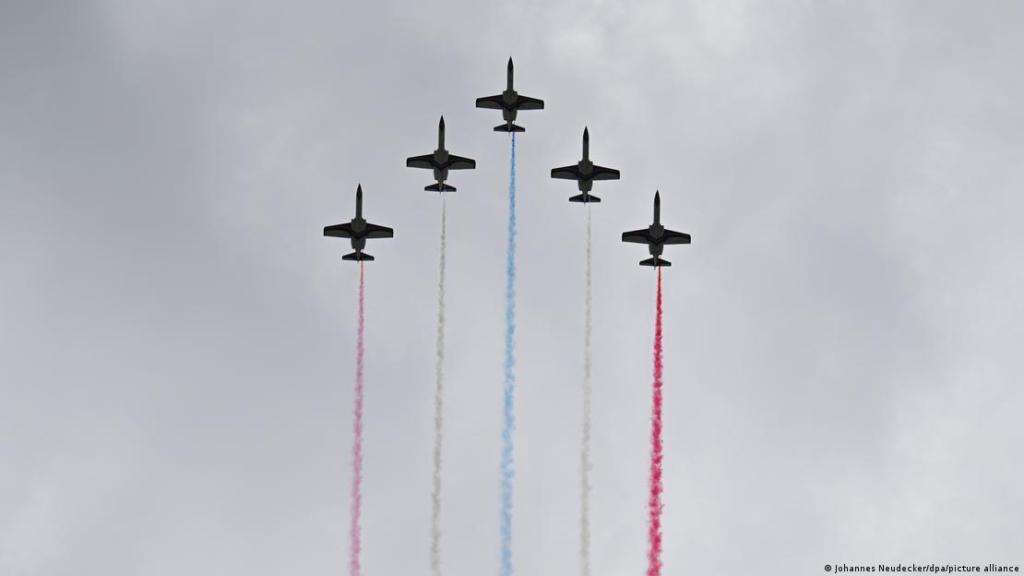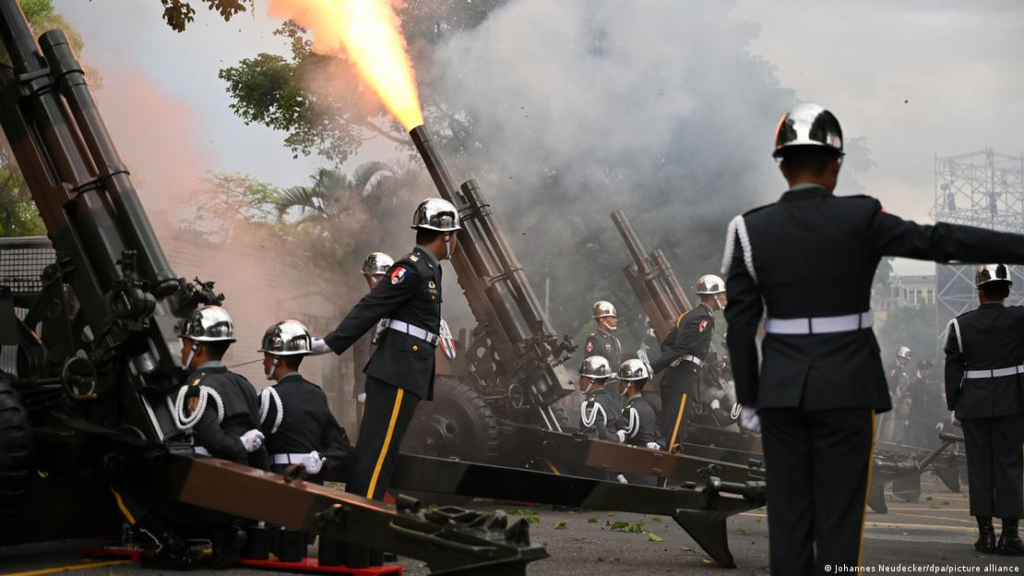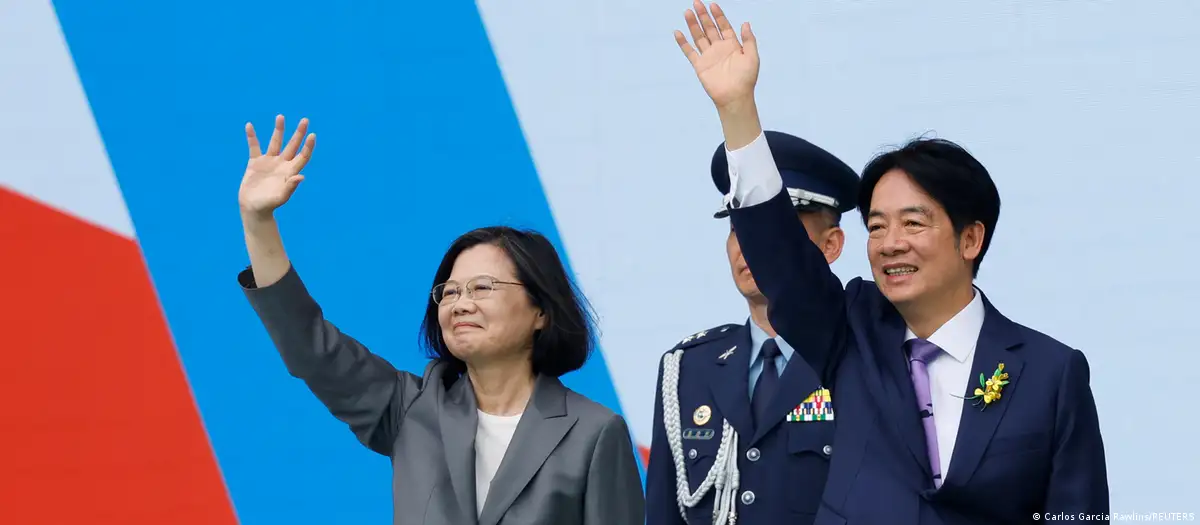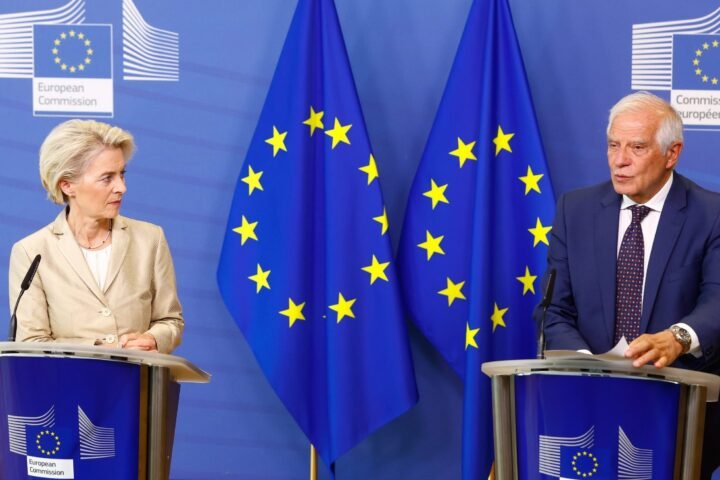Despite President Lai Ching-te’s call for both sides of the Taiwan Strait to pursue peace, China sees him as a “dangerous separatist.” Beijing has increased military activities near Taiwan since his election win.
Taiwan’s new president, Lai Ching-te, took office on Monday amid escalating tensions with China and a divided parliament.
Lai and Vice President Hsiao Bi-khim were sworn in at the Presidential Office Building in Taipei.
The event was attended by international delegations, including from the United States, Japan and Canada.
In his inauguration address, Lai was expected to express goodwill toward China and call for both sides of the Taiwan Strait to pursue peace.
China views Lai, 64, as a “dangerous separatist” who will bring “war and decline” to the region.

Facing a belligerent Beijing
Lai served as vice president under Tsai Ing-wen, whose eight years in power on the democratic island saw much economic and social progress but increasingly deteriorating relations with China.
Lai who once called himself a “pragmatic worker for Taiwan independence,” has since toned down his rhetoric, promising to maintain the “status quo” on the Taiwan Strait, which means preserving Taiwan’s sovereignty while not declaring formal independence.
Beijing had rebuffed Lai’s attempts at dialogue and increased military activities near Taiwan since his election win.
China sees the democratic Taiwan as its territory and has maintained that use of force to bring the island under its control is not off the table.
Ahead of Lai’s inauguration, Beijing’s Taiwan Affairs Office described “Taiwan independence and peace in the strait” as “water and fire.”

Challenges for new leadership
Lai and Hsiao are both part of the Democratic Progressive Party (DPP), which has championed Taiwan’s sovereignty.
According to the new president, Taiwan would continue Tsai’s policies by boosting defense spending and strengthening ties with democratic nations, particularly the United States, its key partner and weapons supplier.
US Secretary of State Antony Blinken congratulated Lai. The US diplomat said he was looking forward to Washington and Taipei deepening ties and maintaining “peace and stability across the Taiwan Strait.”
Domestically, the party is facing challenges having its parliamentary majority in January. On Friday, a brawl broke out among lawmakers over parliamentary reforms the opposition is pushing.
China sanctions US defense firms
Meanwhile, in the lead-up to the inauguration, China imposed sanctions on three US defense companies due to their arms sales to Taiwan, state-run Xinhua news agency reported on Monday.
The companies — General Atomics Aeronautical Systems, General Dynamics Land Systems, and Boeing Defense, Space & Security — are now prohibited from conducting “import and export” business in China.








